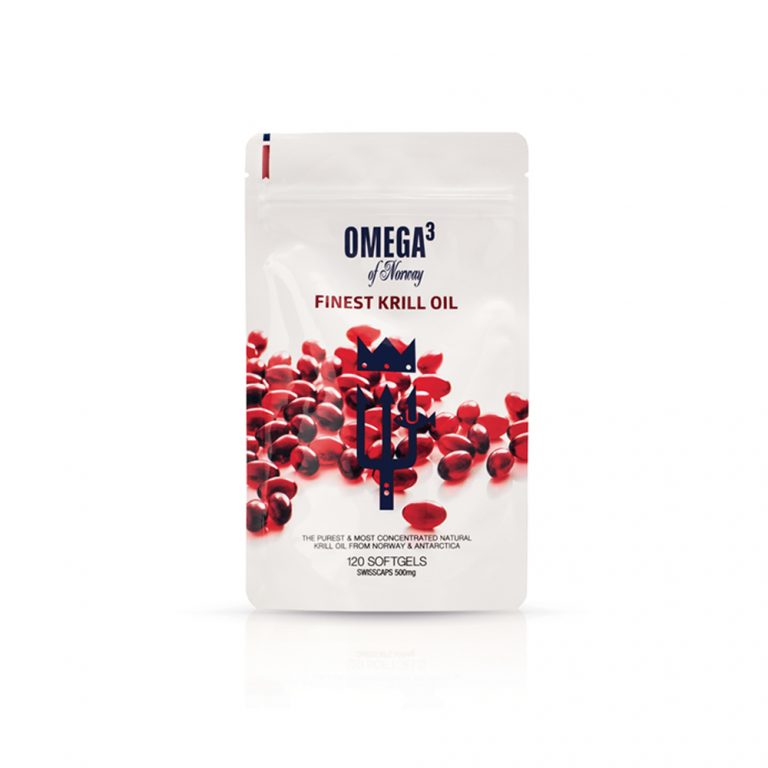We know that omega-3 fatty acids are important for our health. But most people will just think about their impact on our heart health or immune system
https://norwayomega.com/blog/what-are-benefits-of-omega-3-fatty-acids/, but did you know that they are also essential for brain development, memory and to retain the brain’s functionality and performance well into old age? But this is not all, omega-3 fatty acids are also a crucial building block for developing our brain and central nervous system while we are still in the womb.
While it will not prevent Alzheimer’s or make your IQ go through the roof, it does have a positive impact on your brain health and can help with concentration and to retain good cognitive function throughout your whole life.
In this article we will look more into why those fatty acids are so important for our cognitive functions and how they impact us from early childhood well into retirement age.
How Does Omega – 3 Affect Our Brain?
The brain is our headquarters where we make decisions and control almost all areas of our body from a centralized point. So we want to make sure that our brain is as healthy as possible, so we can go through life with a clear mind and ready to face any challenge.
About 60% of our brain are fats. The omega – 3 fatty acid DHA makes up 40% of those fatty acids that comprise such a big part of our brain. So it is easy to see why omega – 3 are so important for our brain health. But how do they affect our brain in our day-to-day life?
Well, first of all, the omega – 3 fatty acids that are most important for humans, DHA and EPA, cannot be produced by our body itself. We rely on consuming them through food, and they are crucial for the proper functioning of our body. There is a variety of foods that contain high amounts of omega – 3 fatty acids https://norwayomega.com/blog/which-products-provide-abundant-amounts-of-omega-3-fatty-acids/, but taking a high-quality supplement such as fish oil or krill oil can be a convenient and easy alternative to make sure that you get enough of those essential fats.
Omega – 3s are important building blocks of our cell membranes and provide support for our memory, cognition and overall emotional well-being. Being part of the brain cell membrane, they impact the communication between cells as well as the maintenance of structural integrity of our central nervous system. Researchers have discovered that omega – 3 can potentially strengthen memory, improve cognitive abilities and even boost your mood. They also help blood flow smoothly through our body by keeping our blood pressure low, our heart beating steady and can improve our blood lipid levels. All of which is important for our brain to receive sufficient amounts of blood rich in oxygen and to reduce the risk of a stroke by clotted arteries.
They also seem to help our brain to function better by improving synaptic plasticity, the communication between brain cells, and are important for the production of several proteins that are used for learning and memory.
EPA and DHA don’t just support our brain in its function but their anti-inflammatory properties also protect it from inflammation, and they can even help protect our brain from oxidative damage. Their neuroprotective properties therefore make omega – 3 fatty acids a potential treatment option for a variety of neurodegenerative and neurological disorders.
Why Omega – 3 ´s Matter? Even Before You Are Born
Like we’ve said above, omega – 3 fatty acids are essential for our brain, its structure and functioning. But their influence already starts while our brain is still developing, and we are not even born yet. During fetal development, omega – 3s start to accumulate and higher levels of those fats during pregnancy have been linked to higher intelligence and cognitive ability in children, while lower levels have been linked to brain dysfunctions such as ADHD. Especially during the last 3 months of fetal development, omega – 3 fatty acids are transferred to the fetus to meet its growing demands while the brain is developing. The nutrition of the mother (https://norwayomega.com/blog/omega-3-is-good-for-both-mother-and-child/) plays an important role throughout pregnancy and taking an additional omega – 3 supplement can be beneficial to the child as it is also needed for the development of the retina for example.
Once we are born, our brain keeps growing and evolving. Most of this growth happens in the first 5-6 years of age and studies have shown that omega – 3 can have a positive impact on attention span and cognitive ability in children who were taking additional supplement, especially if they previously had an omega – 3 deficiency.
Can Omega – 3 Prevent Alzheimer’s?
The short answer is: No. But still, omega – 3 fatty acids play an important role for our brain health and especially in old age, they are an essential part of maintaining our cognitive abilities.
Several studies have found that regular intake of oily fish is associated with lower rates of dementia and can even be associated with a lower risk of silent brain infarcts. This might be due to the omega – 3 fatty acids that naturally occur in some cold-water fish such as salmon or mackerel. Eating fish might also slow the rate of “normal” age-related cognitive decline, other studies suggest. While it will not cure an existing condition, it can be beneficial for people to start consuming omega – 3 to prevent their onset and ease symptoms. Almost half of all adults above the age of 65 suffer from some form of short or long-term memory loss, so it is a problem that could affect many of us.
This decline can be due to many factors such as environmental stressors or genetics for example. Age-related memory loss is mainly caused by two things: the brain’s ability to repair its cells decreases with age because we produce less of the proteins and hormone compounds that it needs to do so; and the other factor is reduced blood flow to the brain due to changes in blood pressure and circulation that naturally come with age. But how does omega – 3 impact this natural decline? Omega – 3 can help increase the production of those hormones and proteins needed to repair brain cells and also prevents the build-up of plaque in our arteries, which can restrict blood flow to vital organs such as our heart or brain and can cause heart attacks or strokes. Recent studies even show that supplementing your diet with omega – 3 can halt the process of deterioration of cells, increase grey matter volume and even prevent age-related cognitive decline to some degree.
While this works for people with normal health, it does not seem to be able to prevent more serious conditions such as Alzheimer’s or dementia. So it is most beneficial to start taking fish oil in the early stages of cognitive decline to slow the process, since it won’t be able to reverse its effects.
Conclusion
Omega – 3 fatty acids are good for us, period. However, they are no miracle cure for serious conditions such as dementia or Alzheimer’s, but they can help ease natural cognitive decline and are especially important in the early stages of our life while our brain is growing and expanding.
Taking an omega – 3 supplement is an easy and straightforward way to ensure that you meet your body’s needs and are giving it all it needs to develop in the best possible way and to stay as healthy as possible. Check out our Shop (https://norwayomega.com/shop/) and browse our range of products today! We offer high-quality fish oil and red krill oil supplements, almost tasteless and odourless for the most comfortable consumer experience.


















